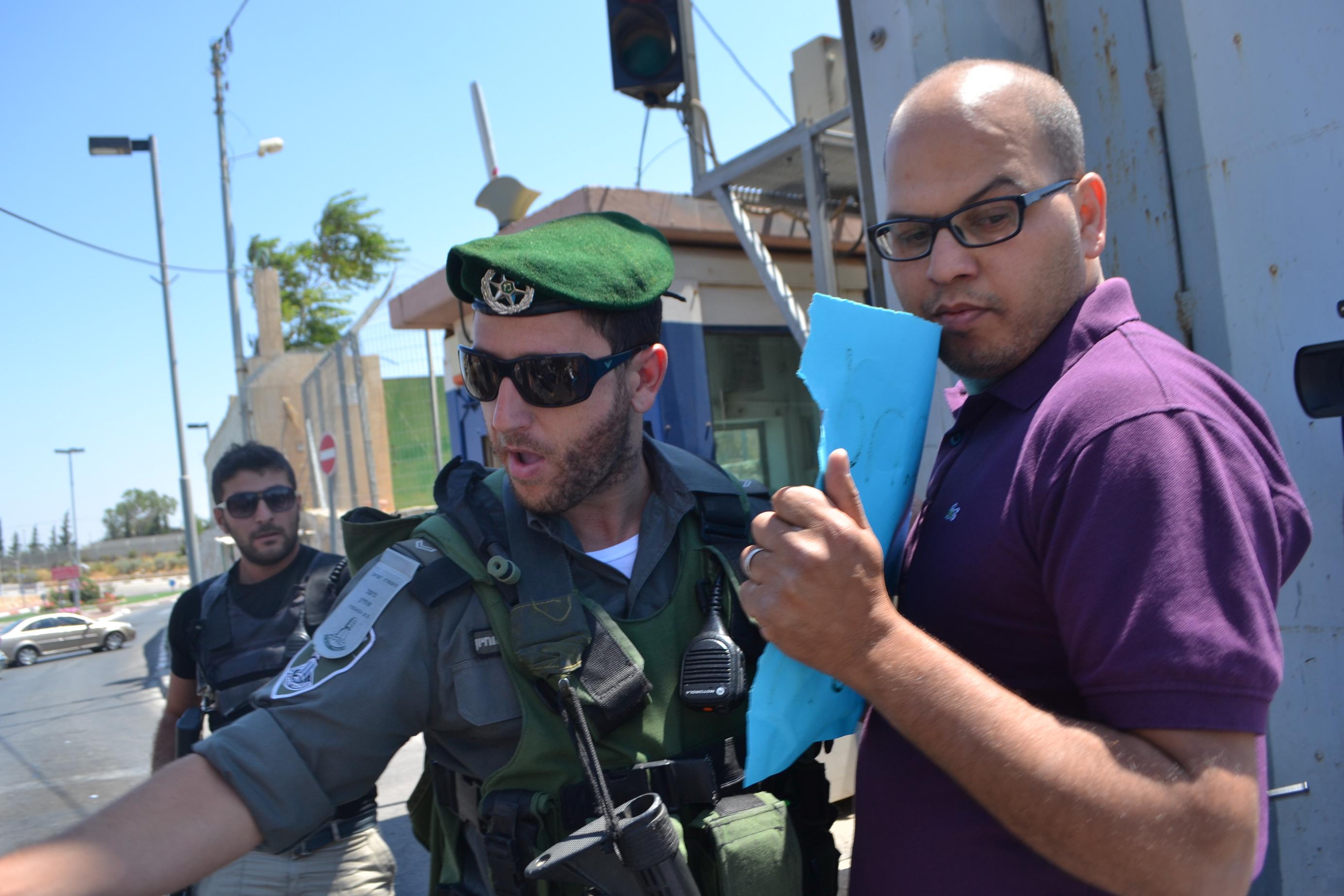Tag: Jerusalem
-
Restriction of movement remains for Palestinians during Ramadan
20th July 2013 | International Solidarity Movement, Ramallah Team | Qalandiya, Occupied Palestine On the second Friday during Ramadan, hundreds of Palestinians from the West Bank crossed Qalandiya checkpoint to access Jerusalem and pray at the Al Aqsa mosque. From the early hours of Friday, many hundreds of Palestinians from all across the West Bank…
-
“Knocking on the gates of Jerusalem”: demonstration against injustice of Israeli occupation
29th June 2013 | International Solidarity Movement, Khalil team | Bethlehem, Occupied Palestine Today, Saturday 29th June, a group of Palestinian activists demanded access to the occupied city of Jerusalem through the gate in the Apartheid Wall in Bethlehem. Their nonviolent demonstration also aimed to highlight Palestinian opposition to the US Secretary of State John…
-
“Next time we will pray in Jerusalem” – activists demonstrate at apartheid checkpoint blocking access to occupied Jerusalem
22nd June 2013 | International Solidarity Movement, Khalil Team | Bethlehem, Occupied Palestine In the morning of June 22nd, Palestinian, international and Israeli activists marched to the Israeli occupation military checkpoint blocking the West Bank from Jerusalem. Upon reaching the Israeli occupation roadblock, they were stopped by soldiers who violently prevented them from passing through…

